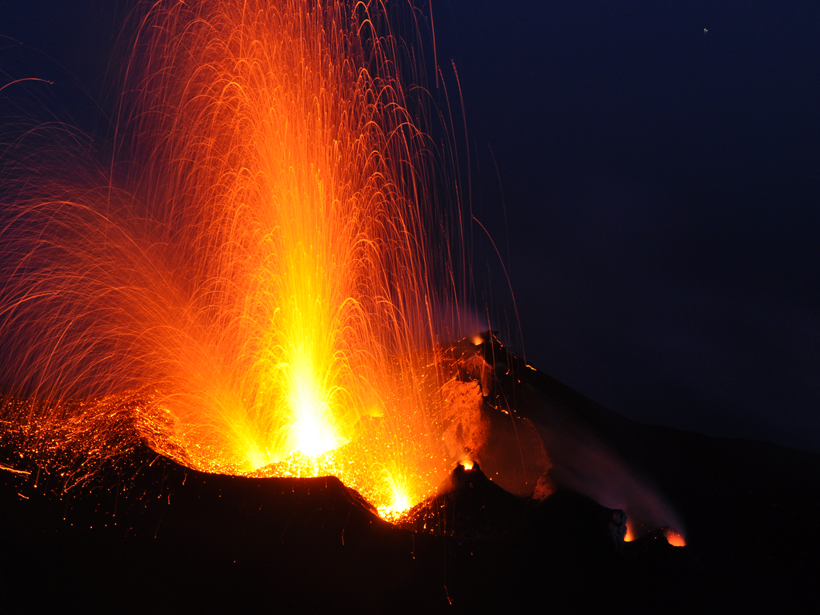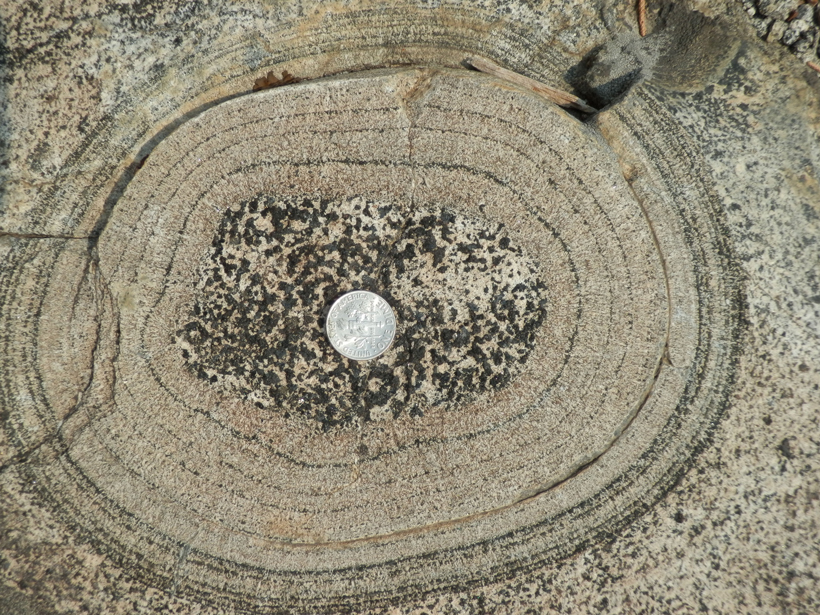An international seismological collaboration in Kamchatka, Russia, investigates the driving forces of one of the world’s largest, most active volcano clusters.
volcanoes
An Improved Model of How Magma Moves Through the Crust
Researchers have developed a new numerical model that can, for the first time, solve for both the speed and the path of a propagating dike.
What Led to the Largest Volcanic Eruption in Human History?
A mineral-dating project at the Toba caldera in Indonesia sheds light on the science of supereruptions.
“Fingerprinting” Volcanic Tremors May Help Forecast Eruptions
Volcano seismic waves produce distinct tremor patterns, or "fingerprints," shared by different kinds of volcanoes.
Balloons of Lava Bubble into the Ocean from Seafloor Blisters
These peculiar features of submarine volcanic eruptions could be the result of undersea lava lakes.
Volcanic Ash Particles Hold Clues to Their History and Effects
Volcanic Ash as an Active Agent in the Earth System (VA3): Combining Models and Experiments; Hamburg, Germany, 12–13 September 2016
Lunar Lava Tubes Could Offer Future Moon Explorers a Safe Haven
Scientists find evidence that a 50-meter-deep pit on the Moon's surface could be a skylight opening to an intact lava tube tens of kilometers long.
What Caused the Fatal 2014 Eruption of Japan's Mount Ontake?
Analysis of the change in the stratovolcano's tilt just prior to the explosion suggests that the cracking of a previously intact fluid barrier caused the country's deadliest eruption since 1926.
Tracking Volcanic Bombs in Three Dimensions
A new method allows researchers to precisely track in three dimensions bits of fragmented magma as they are expelled in explosive volcanic eruptions.
Pulses of Rising Magma in Sierra Nevada's Past
A detailed study of layered igneous material at California's Fisher Lake offers a novel approach to identifying the pathways and timescales of individual magma pulses in volcanic arcs.










